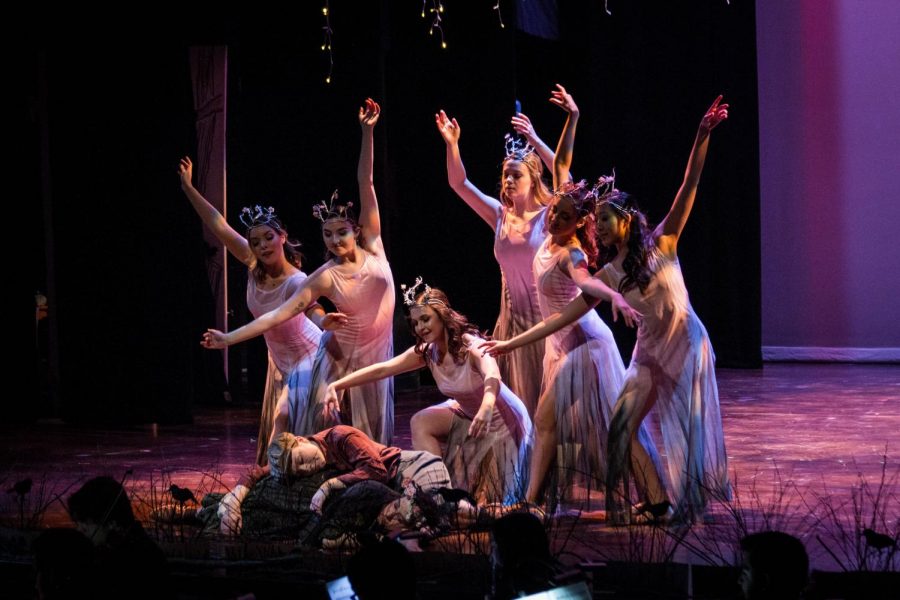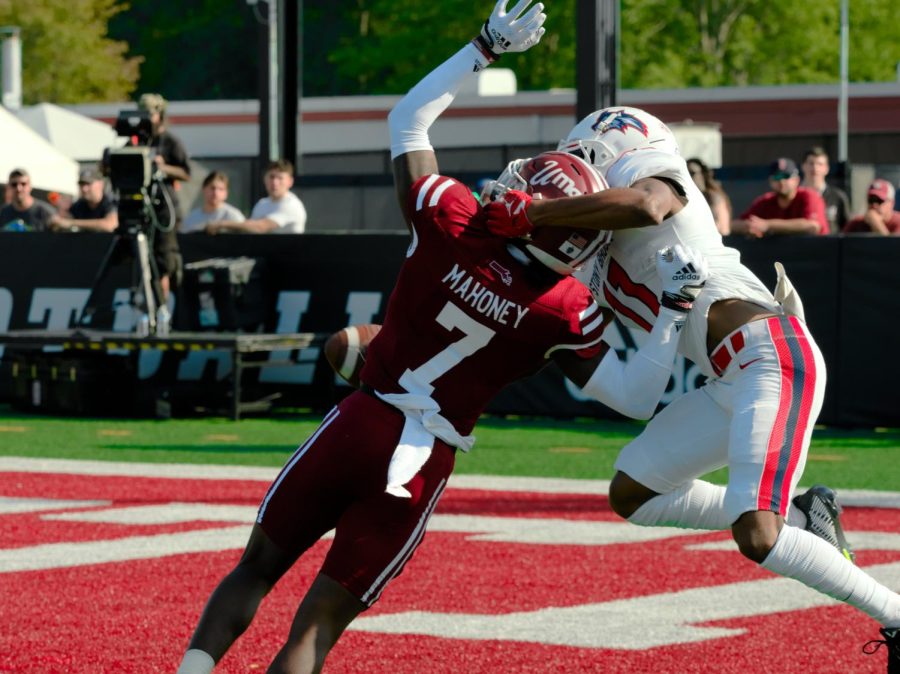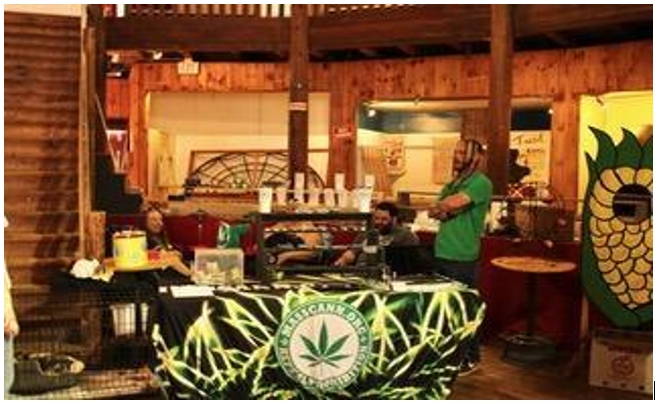I don’t need to remind you of what happened in mid-March 2020. The world shut down, businesses closed, events were cancelled, everyone sheltered inside, adjusting to life in quarantine. The performing arts were no exception. On March 12, Broadway went completely dark. Around the country, dance companies cancelled the rest of their seasons. Festivals were cancelled, theaters closed: the stages, dressing rooms and rows of empty seats left abandoned.
Of course, everyone was affected by the pandemic. People in every industry are facing economic and emotional challenges. However, those outside of the performing arts world may overlook the devastating affects the pandemic has had on music, dance and theater. While restaurants, sports and businesses slowly start to reopen, theaters remain closed. Performing artists depend on the human connection, but this year has robbed us of that irreplaceable component. Not only can we not perform in front of a live audience, we remain distanced from our fellow artists. For months, we have been creating in isolation, with no end in sight.
Setbacks as a Student
As a student in the performing arts, I have felt these setbacks on a smaller scale. I’ve danced for close to 15 years and am pursuing my Bachelor of Fine Arts in Dance. Dance has been my livelihood for as long as I can remember. In March, the thing I love most was suddenly torn from me. In the past six years or so, I am guessing the longest break I ever had from the studio was two or three weeks. After the pandemic hit, I couldn’t dance inside a studio for close to five months. Sure, I could take Zoom classes, but this meant restricting my movement to a small square in my living room. The floors in my parents’ home are not meant for dancing, and rehearsing would leave my joints aching for days. Dancing in quarantine was isolating and I burned out quickly.
I am no longer pursuing a professional performance career, but I have enormous empathy for my peers who are. Most pre-professional dance students train rigorously for a minimum of 15 hours a week. This level of training was simply not possible in quarantine. I’ve seen many of my peers’ plans for the future set back by their hiatus from the studio. They are frustrated and nervous for the future.
While I am lucky to have in-person dance classes this semester, this return has been full of setbacks. There are small inconveniences, like limited studio hours and restricted space. Then, there are some changes that are harder to come to terms with. I’ve watched as my peers’ senior thesis performances, which they have planned for the past three years, have been turned upside down. Their choreography will be confined to 10-foot squares and dancers will remain distanced from each other. There won’t be live audiences, meaning their friends and families won’t see these milestone projects in person.
These challenges are not unique to dance. “Summer was horrible,” said sophomore music major Ethan Cogswell, as he described the extreme burnout and isolation he experienced. Cogswell is studying music education and trumpet performance, and aspires to perform professionally. Before COVID-19, he had begun making strides in his performance career, booking paying gigs to play in musicals and choirs. This all came to an abrupt end when the pandemic hit. By summer, his music career consisted of practicing once every three days. No performances, no gigs, just him and his trumpet.
“When it ended abruptly in March, they were like ‘alright, I’ll call you next season.’ Obviously, it currently is next season, and that’s not happening,” Cogswell said.
These feelings were shared by Molly Plaisted, a junior music major studying Jazz & African-American Music Studies and drum performance. While returning to campus this fall meant that Plaisted could rehearse without the fear of disturbing her easily-bothered neighbors, the return has presented new challenges. In years prior, she would rehearse in the Fine Arts Center well into the night. Now, the building closes at 5:00 p.m. There are no performances or concerts to look forward to. The pandemic has separated the once-large ensemble groups. While some instruments can play together masked up, horn players are still isolated. Some musicians can play outside, but the wrong temperature could damage their expensive instruments. Remote music theory courses are extremely difficult over Zoom and often leave students fending for themselves.
Again, these changes may seem unimportant to a nonperformer, especially compared to the larger issues the country is facing. But as artists, we train to perform. We train to create. This work is more than just a fun hobby—it is our livelihood. Of course, we are thankful to be back creating, but this return often reminds us of how much we have lost.
A Changing Industry
Outside of our university bubble, these challenges coincide with larger industry changes. The fear of the future and longing for normalcy is felt by artists everywhere.
“Everyone’s a producer now,” Plaisted joked.
When companies and performance halls were forced to cancel their seasons, individual artists took on the responsibility to continue producing work. Moreover, there have already been economic setbacks. The performing arts rely upon ticket revenue to survive, so when there are no performances, they can’t sell tickets. In June, Cirque du Soleil filed for bankruptcy. Broadway has already announced it will not reopen until 2021. These are two of the largest, highest-earning facets of the performing arts industry. If they are struggling, surely the smaller, local companies are facing even larger obstacles.
While artists remain self-employed, the country has survived quarantine by consuming our art as their entertainment. Millions enjoyed watching Hamilton on Disney+ in July. Hamilton tickets usually cost hundreds, but the streaming service allowed viewers to enjoy the performance at an extreme discount. Meanwhile, the entire cast and crew is currently out of work. Countless other music, theater and dance companies made their content free or discounted online so the public could enjoy their art during quarantine. The performing arts are obviously not the most lucrative career, but no artist is in this industry for the money. We create so that others can consume. Still, artists should be compensated for their work.
The future’s uncertainty leaves many questions unanswered: Will audiences ever feel comfortable sitting in a crowded theater again? Will our companies, theaters and performance groups survive? Will we ever get to perform like we used to?
Moving Forward
Our country is currently at a crossroads. We are facing economic, environmental and social issues like we never have before. Right now, the world needs more art and creativity.
“Art needs to be the beacon leading the way,” Plaisted said. First though, artists need the public’s support.
The easiest way to support artists right now is to take COVID-19 precautions seriously. The longer we ignore social distancing guidelines, the longer it will take for theaters to reopen. Wear a mask now, so we can do our jobs soon.
More importantly, the arts need public support to stay afloat. If you have consumed any art over the past few months, recognize that the artist may currently be out of work or struggling to stay afloat.
“Artists are also a part of the workforce,” Cogswell said.
Though artists often have to prove their legitimacy to be taken seriously, we are essential. Keep consuming art but also vote for public officials who support public funding of the arts and, if possible, consider donating to a local performing group.
Throughout history’s darkest times, the arts have reminded us of humanity’s strength. The arts allow us to escape our reality, question our beliefs and create new possibilities. Artists will never stop working, but now, more than ever, we need your support.
Emma Garber can be reached at [email protected]. Follow her on Twitter @EmmaGarber1.




















